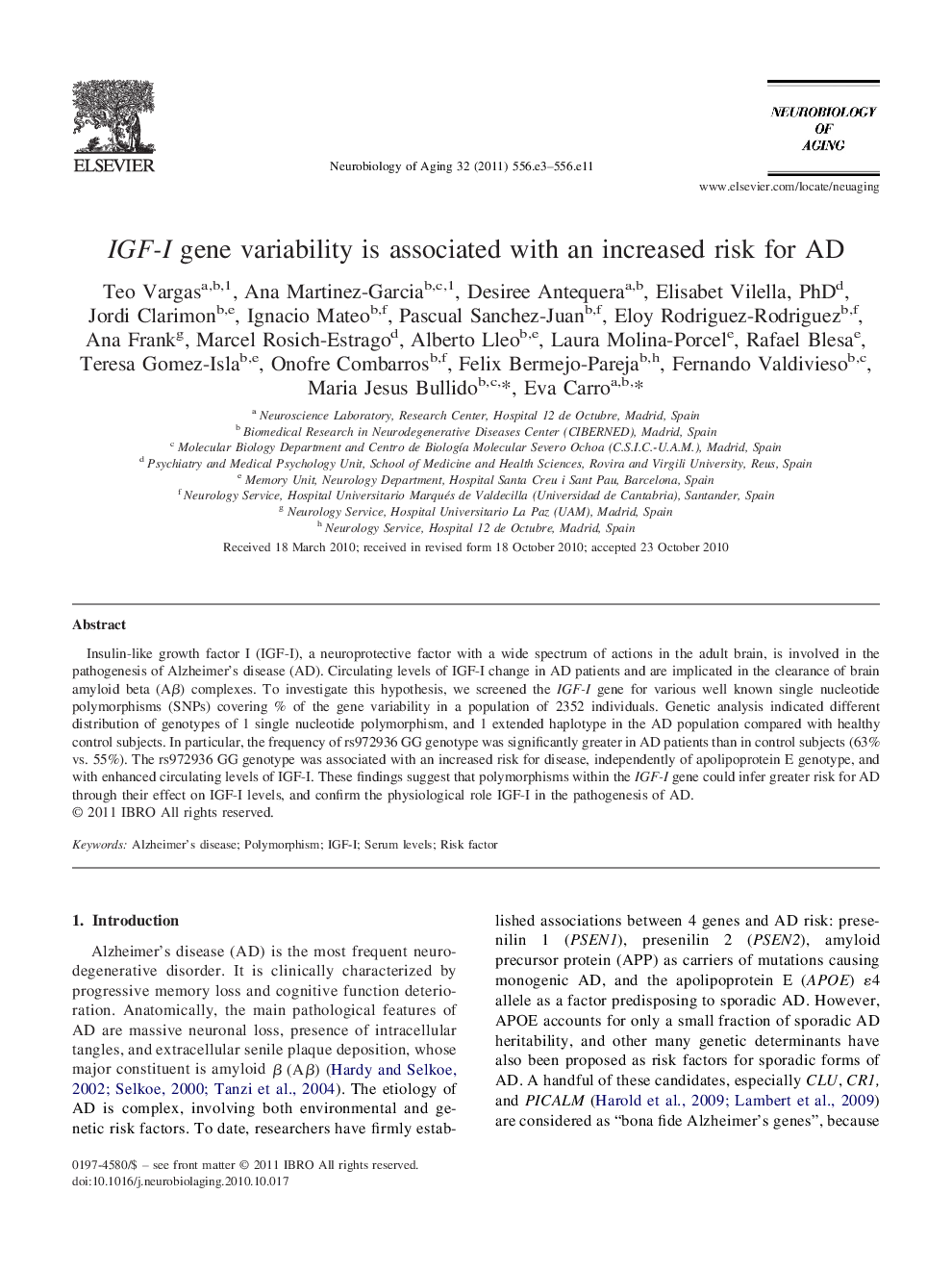| Article ID | Journal | Published Year | Pages | File Type |
|---|---|---|---|---|
| 329284 | Neurobiology of Aging | 2011 | 9 Pages |
Abstract
Insulin-like growth factor I (IGF-I), a neuroprotective factor with a wide spectrum of actions in the adult brain, is involved in the pathogenesis of Alzheimer's disease (AD). Circulating levels of IGF-I change in AD patients and are implicated in the clearance of brain amyloid beta (Aβ) complexes. To investigate this hypothesis, we screened the IGF-I gene for various well known single nucleotide polymorphisms (SNPs) covering % of the gene variability in a population of 2352 individuals. Genetic analysis indicated different distribution of genotypes of 1 single nucleotide polymorphism, and 1 extended haplotype in the AD population compared with healthy control subjects. In particular, the frequency of rs972936 GG genotype was significantly greater in AD patients than in control subjects (63% vs. 55%). The rs972936 GG genotype was associated with an increased risk for disease, independently of apolipoprotein E genotype, and with enhanced circulating levels of IGF-I. These findings suggest that polymorphisms within the IGF-I gene could infer greater risk for AD through their effect on IGF-I levels, and confirm the physiological role IGF-I in the pathogenesis of AD.
Related Topics
Life Sciences
Biochemistry, Genetics and Molecular Biology
Ageing
Authors
Teo Vargas, Ana Martinez-Garcia, Desiree Antequera, Elisabet PhD, Jordi Clarimon, Ignacio Mateo, Pascual Sanchez-Juan, Eloy Rodriguez-Rodriguez, Ana Frank, Marcel Rosich-Estrago, Alberto Lleo, Laura Molina-Porcel, Rafael Blesa, Teresa Gomez-Isla,
